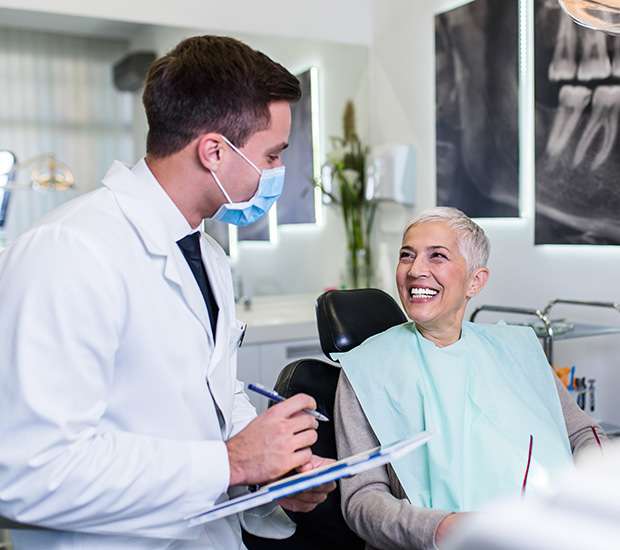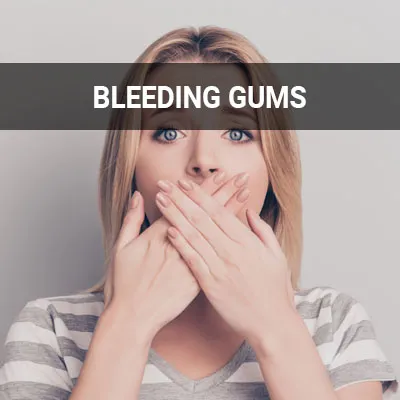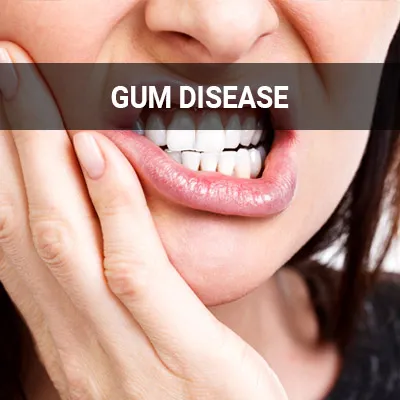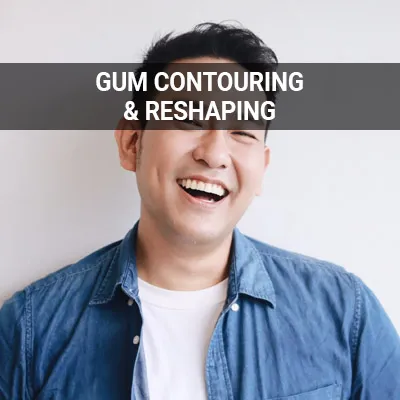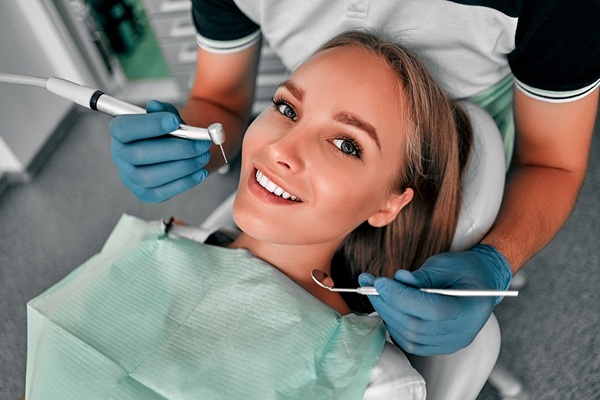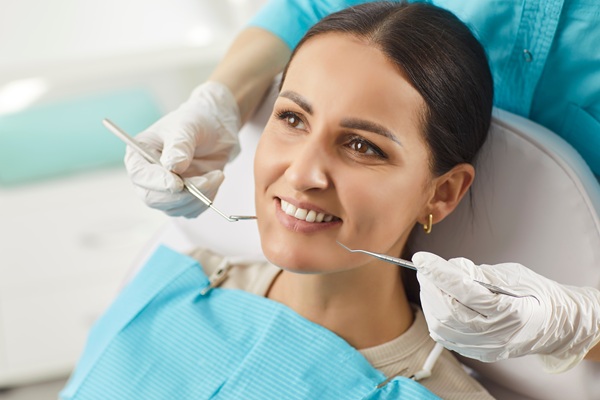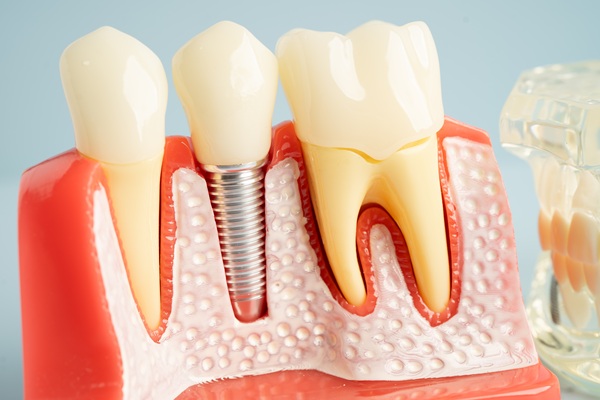Soft-Tissue Laser Dentistry Brooklyn, NY
Laser dentistry allows providers to perform minimally invasive surgeries on the mouth and gums. This technologically advanced dentistry benefits patients and improves outcomes. Soft-tissue laser dentistry is used for surgical procedures involving the oral cavity, gums, and mouth.
Soft-tissue laser dentistry is available at Nostrand Dental in Brooklyn and the surrounding area. Our dental practice is committed to using the latest technological tools to improve treatment times and healing. To learn more about our services or schedule an appointment, call us today at (718) 513-9685.
Pros and Cons of Soft Tissue Laser Dentistry
The soft tissues include the gums, lips, inner cheeks, and palate. Dental providers also consider the pulp inside teeth as soft tissue. Dentists often use metal instruments to resolve the issue when soft-tissue dental problems develop, like drills and scalpels. Unfortunately, these tools can also result in discomfort and bleeding. As a result, patients with dental anxiety may feel uneasy about undergoing treatment.
Fortunately, soft tissue laser dentistry provides an alternative. With the help of laser technology, dentists can gently clean and reshape soft tissues. Laser energy disinfects tissue to clear up infection without medication. Soft tissue laser dentistry is minimally invasive and may result in a short recovery period. Patients also report less pain and bleeding after a laser procedure. However, laser dentistry may not be right for everyone. Some dental concerns require traditional procedures or complex reconstructive work. Our dental team can determine whether each patient is a candidate for laser dentistry.
“Soft tissue laser dentistry is minimally invasive and may result in a short recovery period.”
Soft-Tissue Laser Dentistry in Orthodontics
Laser dentistry is being incorporated more often in orthodontic treatments. Dental providers can use soft-tissue lasers to help contour gums and reshape them to remove excessive gum tissue. Lasers can also be part of a treatment plan for impacted teeth. The laser allows the tooth to grow more appropriately into the mouth, improving the patient's smile.
“Dental providers can use soft-tissue lasers to help contour gums and reshape them to remove excessive gum tissue.”
Post-treatment Care
After laser procedures, patients receive personalized aftercare instructions. For example, some patients may have dietary restrictions for a few weeks. The dental team may also suggest using an antiseptic mouthwash to prevent infection.
Light bleeding or minor swelling are common side effects. Patients may also notice some changes in their oral tissues. The gums may appear reddened or bruised. These changes are usually temporary. Most patients experience minimal discomfort after a laser procedure. If the patient reports pain or significant swelling, the dentist can provide additional care.
“Most patients experience minimal discomfort after a laser procedure.”
Check out what others are saying about our dental services on Yelp: Soft-Tissue Laser Dentistry in Brooklyn, NY
The Right Candidate for Laser Dentistry
Laser dentistry carries few risks, and it is suitable for a wide range of patients. But patients with bleeding disorders might not be good candidates for these procedures. Patients with complex dental needs may also do better with traditional procedures. A dental provider can offer personalized treatment recommendations.
Patients may be a candidate for soft-tissue laser dentistry if they have the following:
- Deep-tissue infections
- Gum inflammation
- Gum recession
- Impacted wisdom teeth
- Mouth sores
- Overgrown gums
- Tongue-tie
Soft-tissue laser dentistry can also help treat sleep apnea. This potentially life-threatening condition can interfere with nighttime breathing. Removing tissue from the patient's mouth and throat could ease sleep apnea symptoms.
“Laser dentistry carries few risks, and it is suitable for a wide range of patients.”
Questions Answered on This Page
Q. What is the role of soft-tissue laser treatment in orthodontics?
Q. What are the pros and cons of soft-tissue laser dentistry?
Q. What is post-treatment care after soft-tissue laser dentistry?
Q. Who is the right candidate for laser dentistry?
Q. What are examples of soft tissue laser dentistry procedures?
People Also Ask
Q. What are the signs of gum disease?
Q. Am I at high risk for developing oral cancer?
Q. What are the advantages and disadvantages of laser dentistry?
Soft Tissue Laser Dentistry Procedures
Additionally, soft tissue laser dentistry can treat canker sores, cold sores, gum disease, damaged nerves. Some soft-tissue procedures can also help with tumor biopsy and removal. However, most patients who opt for soft tissue laser dentistry undergo gum treatment.
During this procedure, the dentist may remove excess tissue. They might also reshape the existing tissue to provide a uniform appearance. Gum treatment can improve oral health and boost the patient's self-confidence.
“Gum treatment can improve oral health and boost the patient’s self-confidence.”
Frequently Asked Questions
Q. What is laser dentistry?
A. In the past, dentists often used drills and sharp tools to perform procedures. These tools sometimes result in significant pain, swelling, or bleeding. Modern lasers streamline the treatment process. Laser technology might make procedures more comfortable for patients.
Q. What are the benefits of laser dentistry?
A. Laser dentistry offers added precision and control. Dentists can use lasers to target diseased tissue and tooth decay. Dental lasers can also sculpt tissues to provide cosmetic enhancement.
Q. Will I need pain medication during my procedure?
A. Many patients do not need anesthetic during laser dentistry procedures. However, if necessary, the dentist may provide a mild numbing cream. This medication eases discomfort without leaving the patient groggy or disoriented.
Q. Is there a risk of infection?
A. Every dental procedure carries some risk of infection. However, laser dentistry has a low risk of complications. The laser destroys bacteria around the target tissue to reduce the patient's risk of infection.
Q. Am I a candidate for laser dentistry?
A. Most patients can receive laser dentistry. But traditional procedures might be a better fit for some patients. Our team can determine whether laser dentistry is right for you.
Dental Terminology
Contact Us To Learn More
If you are interested in finding out whether you are a candidate for laser treatment, contact us. Call us at 718-513-9685 to schedule a consultation. We are proud to provide our Brooklyn patients with the most effective tools in dental care.
Helpful Related Links
- American Dental Association (ADA). Glossary of Dental Clinical Terms. 2024
- American Academy of Cosmetic Dentistry® (AACD). Home Page. 2024
- WebMD. WebMD’s Oral Care Guide. 2024
About our business, license, and website security
- Nostrand Dental was established in 1998.
- We accept the following payment methods: Cash, CareCredit, Check, Discover, MasterCard, and Visa
- We serve patients from the following counties: Kings County, New York County, Richmond County, Queens County, and Nassau County
- We serve patients from the following cities: Brooklyn, Manhattan, Queens, Staten Island, and Long Island
- NY (License #46702). View License Information and Specifics
- National Provider Identifier Database (1457434540). View NPI Registry Information
- Norton Safe Web. View Details
- Trend Micro Site Safety Center. View Details
Back to top of Soft-Tissue Laser Dentistry
